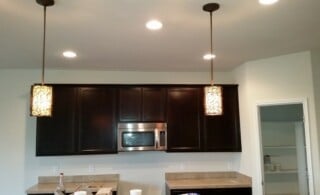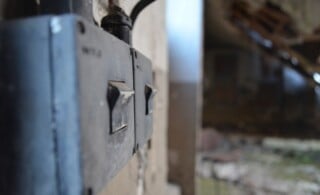
There are many reasons why modern homeowners find that an electrical upgrade is needed in one room or another. Not only do today’s homeowners have far more electrical needs than previous generations, but older electrical wiring is sometimes far too outdated to safely run the expensive, modern devices that are common in many homes. Before you call in a contractor for an electrical wiring project, it is a good idea to know not only what areas of the home you’d like to enhance, but also what this kind of work will entail.
Planning Your Electrical Upgrade
While adding an extra outlet to run an electric toothbrush in the bathroom is generally not a big deal, a sizable electrical wiring project adds a considerable load to your main electrical service. In nearly 25 percent of all homes, some type of service upgrade is needed before additional wiring can be installed.
Make sure you have plenty of power for present and future needs. When discussing your wiring project with your contractor, think not just of what you are running now, but of the many things you might have in the future that will need to be powered. Consider all ways the space in a new addition might be used and plan for enough electrical service to meet peak needs. Look in your main circuit breaker to see how much power you currently have. Is your service rated for 60-amps or less? If so, it may need to be upgraded.
Bringing Your Home Up to Standard
In older homes, electrical upgrades may be a necessary safety precaution. The electrical wiring in older buildings was put in when the average electrical needs of a household were far fewer. These homes often lack grounded outlets, and do not have a sufficient number of places to plug in the many devices used by the modern family. This can lead to the use of adapters to run three-pronged devices as well as the employment of too many extension cords, which can become a fire hazard.
Some homeowners might have a problem installing new large appliances like dryers, refrigerators, or stoves that run on electricity because the outlets provided are not the proper size. When upgrading electrical wiring throughout the house, you’ll want to pay special attention to areas where multiple appliances will be operated at the same time.
Hiring an Electrical Contractor
Though there are some handy homeowners out there who have the knowledge and experience to do this type of work themselves, for most of us, electrical work is better left to a professional. When you look in the phone book, in most areas you’ll find quite a few companies who do electrical work. It is impossible to tell who will do the best work for the most reasonable price from a phone number or advertisement. Using a website like HomeAdvisor.com can be very beneficial when looking for contractors in your area who have a good reputation. No matter what, it is always a good idea to get several bids and interview several different companies before you settle on one.
If you plan on doing your wiring project yourself, make sure that you are aware of the building codes in your area. Obtaining the proper permits and adhering to building code might seem like a hassle, but these guidelines are in place for a reason. Additionally, when it comes time to sell your home, sections that are not up to snuff may end up costing you more to redo yourself than it would have cost to get the job done right in the first place!
 Preparing for Lighting Installation
Preparing for Lighting Installation  Powerful Electrical Upgrades
Powerful Electrical Upgrades  Upgrading Electrical Circuits
Upgrading Electrical Circuits  Ceiling Fan Installation
Ceiling Fan Installation  How to Wire a Light Switch
How to Wire a Light Switch 

Are You Familiar With This Topic? Share Your Experience.